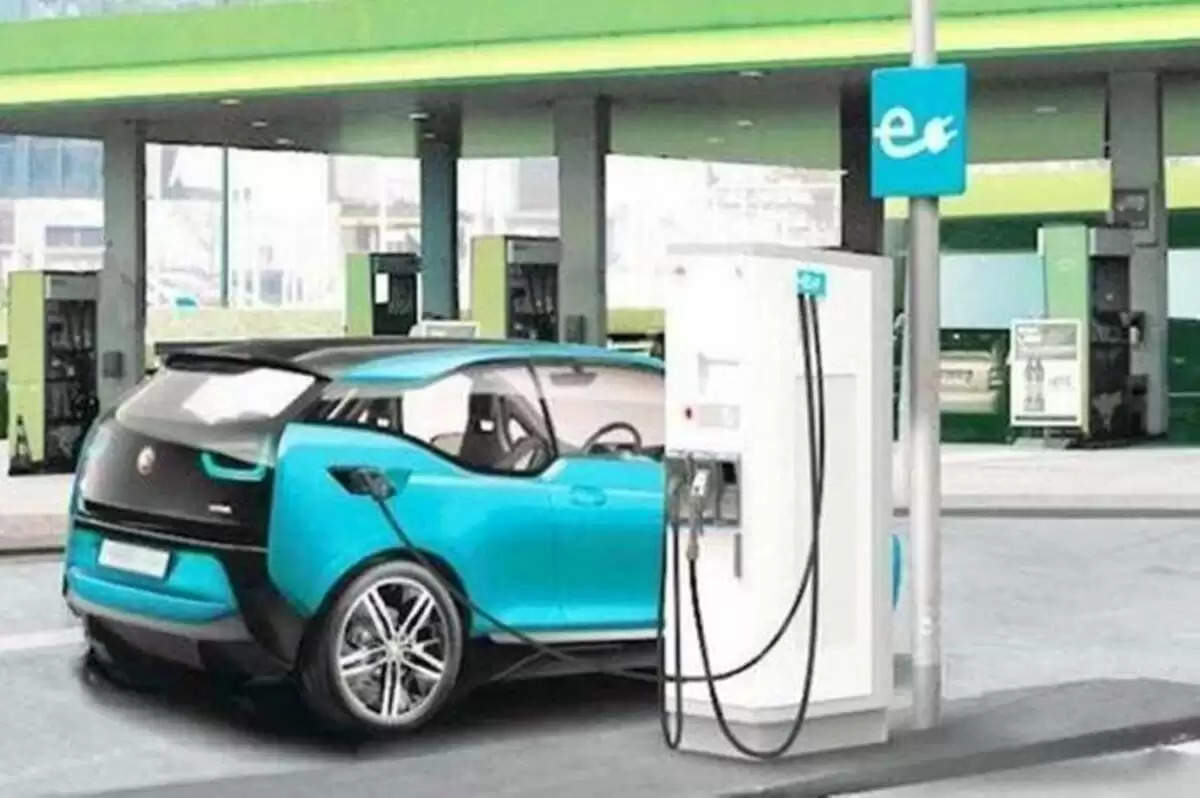EV infrastructure plans get a boost from central government and private companies.

Leading central public sector enterprises (CPSEs) and a slew of private sector firms have firmed up plans to build electric vehicle (EV) charging stations across the country, a move that will hasten the spread of these environmentally-friendly vehicles, help curb rising vehicular emissions, and reduce India's GDP's carbon intensity. State-run energy companies like IOCL, HPCL, and NTPC, as well as private companies like Tata Power and Reliance Industries, are leading the charge.
Indian Oil Corporation (IOCL), the country's largest fuel retailer, recently stated that it will install electric vehicle charging stations at 10,000 of its retail outlets over the next three years. The announcement came only days after Prime Minister Narendra Modi announced India's ambitious 2070 net-zero goal at the COP26 summit in Glasgow.
The decision came after the state-owned Hindustan Petroleum Corporation (HPCL) announced in mid-September that it will build 5,000 electric vehicle charging stations over the following three years.
"In most EV partnerships, the retailers are playing a passive role by offering private players space at existing outlets," according to Bloomberg New Energy Finance (BNEF) analysts, adding that "they will have to continue relying on external partners for some time as none of them are doing any significant in-house development."
IOCL, which has 448 EV charging stations and 30 battery swapping stations around the country, said it has worked with a variety of companies to install EV chargers at petrol stations, including Tata Power, NTPC, Fortum, Hyundai, Tech Mahindra, BHEL, and Ola. HPCL has also agreed to put up electric vehicle charging stations with Tata Power.
Tata Power now operates 878 public EV charging stations and plans to have more than 1 lakh by the end of FY25. To materialize its EV charging objectives, the corporation is primarily pursuing three channels: home charging, public charging, and fleet owners.
Reliance Industries Ltd recently announced that its fuel and mobility joint venture with bp, Reliance BP Mobility (RBML), will set up a network of electric vehicle charging stations and battery swap stations at its Jio-BP fuel stations, expressing its desire to become India's leading EV charging infrastructure player.
a power plant run by the government NTPC had previously stated that it intends to install 400 electric vehicle chargers around the country. Under the Centre's 'Faster Adoption and Manufacturing of Electric Vehicles (FAME) scheme, NTPC has installed 142 EV charging stations by the end of FY21, and its subsidiary NTPC Vidyut Vyapar NigamL (NVVN) was tasked with adding 204 EV charging stations in eight cities. The Maharashtra State Road Development Corporation and NVVN have also inked a memorandum of understanding for the construction of EV charging infrastructure on the Mumbai-Pune and Mumbai-Nagpur motorways.
In the base case scenario, electric two-wheelers are likely to account for roughly 10% of overall two-wheeler sales by FY26, according to analysts at UBS. By FY26, it anticipates electric three-wheeler sales to account for 43 percent of annual passenger three-wheeler sales. By FY26, Tata Power estimates that 9.6 to 14.3 million electric vehicles will be on the road. India is one of only a few countries to back the global EV30@30 initiative, which aims for at least 30% of new vehicle sales to be electric by 2030. According to NITI Aayog, successful implementation of the FAME scheme might enhance EV market penetration, which is a requirement for meeting the COP26 targets.
.png)